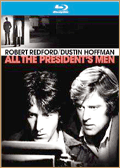Handling the Truth
 Investigative journalism isn’t new to movies, but there aren’t many films that balance story, characters, and the thrill of the chase for facts into a fluid narrative which also leaves audiences thinking about serious events or social issues.
Investigative journalism isn’t new to movies, but there aren’t many films that balance story, characters, and the thrill of the chase for facts into a fluid narrative which also leaves audiences thinking about serious events or social issues.
Perhaps the first film in that arena that comes to mind is Call Northside 777 (1948), in which crusading reporter James Stewart finds the proof needed to set free a wrongly convicted man whose floor-scrubbing mother was the only person who refused to give up on her son’s innocence.
It’s a rock-solid little drama that’s propelled by a reporter searching for the truth, finding injustice, social prejudice, and the use of technology to transfer facts across the country. A large portion of the film deals with how facts are unearthed, winnowed down to a relevant table, and the whole piece comes together with a published story and a free man.
It’s a template that was similarly applied in Gentleman’s Agreement (1947), in which investigative reporter Gregory Peck pretends to be Jewish to see how deep anti-Semitism ran in perfectly ordinary routes and venues of society, be it hotels, country clubs, restaurants, and social circles.
Flash forward to Ron Howard’s The Paper (1994), and the formula’s been twisted a bit, fused wit a little bit of the brutally funny and absurd cynicism from Ben Hecht and Charles MacArthur’s play The Front Page (later remade a few times as films bearing the original title, and as His Girl Friday). Written by brothers David (Angels & Demons) and Stephen Koepp, The Paper is a perfect blend of melodrama, humour, and absurdism, starring an amazing cast and sporting a solid, dryly humorous score by Randy Newman.
It’s also one of the few movies from Universal’s first foray into DVD that’s in DIRE NEED of a letterboxed release. Call this one a forgotten gem no one remembers. Again: look at the cast.
Also note how Jason Robards is among the ensemble troupe, which may be more than coincidence, considering Robards won a Best Supporting Actor Oscar in 1977 for playing Washington Post editor Ben Bradlee in All the President’s Men [M] (1976), perhaps the definitive and most flawless movie about investigative journalism, and despicable political corruption, as chronicled in the eponymous book by reporters Bob Woodward and Carl Bernstein.
Warner Home Video just released a sparkling Blu-ray edition which sports all of the extras from the 2006 anniversary DVD, but it’s a beautiful transfer that again illustrates the right way to transfer an old film to HD without washing away film grain – a problem that a number of critics have lobbed towards Fox.
One of the reasons The Paper and All the President’s Men go hand-in-hand is because they show some of the technological changes over 20 years, not to mention how things have furthered since the nineties.
Woodward and Bernstein did tremendous grunt work using just notepads, telephones, and scribbling notes and quotes for use in articles – a process that seems weirdly antiquated when we’re surrounded by so many toys designed to do things better, faster, and with video.
It’s easy to see why professors use the film version of All the President’s Men as a teaching tool, because like Woodward and Bernstein’s book, it does inspire journalists to try harder, seek out angles, keep asking questions during the fact-searching treks, and reminds writers there is some dignity and nobility to reporting events.
No matter how cynical we’ve become towards the media, if a subway train is down, workers strike, or a federal minister lies to her staff + cabinet + legislature + country at large (er, the Oda affair neither the PM nor the populace seem to care about) we turn to the media for straight facts, whether it comes from right, left or centrist outlets.
It’s a tremendous credit to the filmmakers that the film version of Woodward and Bernstein’s chronicle of the Watergate scandal remains gripping, because we’re just watching writers think aloud and do legwork onscreen in montages, and a few ballsy long takes. No one does this anymore because our film sensibilities have changed, and yet the film still works.
Watching Robert Redford (as Woodward) make calls and uncover further slime in one long slow-zoom is compelling because of the performance, the content of the dialogue, and the audience slowly comprehending the impact of what’s being hashed out.
It’s smart filmmakers trusting the audience without spoon-feeding facts or crafting bouncy music montages, and like the antique fact-gathering processes of the reporters, there’s much to learn about an older style of direction and writing, because the drama and message still come through lean and clean.
.
.
Mark R. Hasan, Editor
KQEK.com
Category: Uncategorized

















Connect